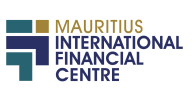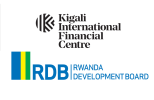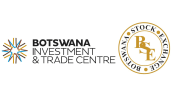The Impact of Mining in Burundi
Mining in Burundi is a topic of great interest. It’s a sector that holds immense potential for the country’s development.
Burundi is rich in mineral resources. These include nickel, gold, rare earth elements, and vanadium.

The mining industry contributes significantly to Burundi’s GDP. It also plays a crucial role in job creation and community development.
However, mining also presents challenges. These range from environmental concerns to social implications.
In this article, we delve into the impact of mining in Burundi. We explore its economic, environmental, and social aspects.
Join us as we uncover the complexities of resource development and mineral exploration in this East African nation.
Burundi’s Mineral Wealth and Mining Potential
Burundi is endowed with a variety of mineral resources. These resources are a key asset for the country’s economic growth.
The country’s mineral wealth includes:
- Nickel
- Gold
- Rare earth elements
- Vanadium
These minerals offer vast opportunities for mining. They have the potential to attract both local and foreign investors.
However, the full potential of Burundi’s mineral wealth is yet to be realized. This is due to various challenges that hinder resource development.
In the following sections, we will explore these challenges. We will also discuss the opportunities that Burundi’s mineral wealth presents for the country’s development.
Historical Overview of Mining in Burundi
Mining in Burundi has a long history. It dates back to the pre-colonial era when locals mined gold along riverbanks.
With the advent of colonial rule, mining activities increased. The colonizers introduced modern mining techniques and expanded the scale of operations.
In the post-colonial era, the government took control of mining activities. They established a legal and regulatory framework to govern the sector.
Today, mining in Burundi involves both industrial and artisanal miners. The sector continues to evolve, adapting to global trends and local needs.
Economic Contributions of Mining to Burundi’s GDP
Mining plays a crucial role in Burundi’s economy. It contributes significantly to the country’s Gross Domestic Product (GDP).
The sector provides a substantial source of foreign exchange. This is mainly through the export of minerals such as gold and nickel.
The economic benefits of mining extend beyond direct revenue. They also include indirect impacts on related sectors. For instance, the need for mining equipment stimulates the manufacturing industry.
Here are some key minerals mined in Burundi and their economic significance:
- Gold: A major export commodity, contributing significantly to foreign exchange earnings.
- Nickel: Its extraction and export have attracted substantial foreign investment.
- Rare Earth Elements: These have potential for future economic growth, given their demand in tech industries.

Legal Framework and Governance in Burundi’s Mining Sector
Burundi has a legal framework for mining. This includes laws and regulations that govern the sector.
The framework sets out the rights and obligations of mining companies. It also outlines the role of the government in overseeing mining activities.
However, effective governance is a challenge. Issues such as transparency and accountability need to be addressed.
Ensuring compliance with the legal framework is crucial. This will help to maximize the benefits of mining for Burundi.
Environmental Concerns and Sustainable Practices
Mining in Burundi has environmental impacts. These include land degradation, water pollution, and deforestation.
The government and mining companies are aware of these issues. They have taken measures to mitigate environmental damage.
Sustainable mining practices are being promoted. These include conducting environmental impact assessments before starting mining projects.
“
However, more needs to be done. The following are key areas for improvement:
- Strengthening environmental regulations and their enforcement
- Promoting the use of renewable energy in mining operations
- Encouraging land reclamation and rehabilitation after mining
Addressing these environmental concerns is crucial. It will ensure that mining contributes to sustainable development in Burundi.
The Role of Foreign Investment and International Partnerships
Foreign investment plays a significant role in Burundi’s mining sector. It provides much-needed capital for exploration and development.
International partnerships also support the sector. They offer technical expertise and capacity building.
“
However, these partnerships must be managed carefully. They should ensure fair benefits for Burundi and its people.
In conclusion, foreign investment and international partnerships are vital. They can help Burundi maximize the benefits of its mineral wealth.
Challenges and Opportunities for Burundi’s Mining Industry
The mining industry in Burundi faces several challenges. Infrastructure, governance, and financing are among the main issues.
Infrastructure is often lacking or inadequate. This hampers the transport of minerals and the operation of mining sites.
Governance is another challenge. Transparency and accountability are crucial for the sector’s success.
Financing is also a concern. Many mining projects require significant investment to get off the ground.
Despite these challenges, there are opportunities. Technological innovation, sustainable practices, and international partnerships can help overcome these hurdles. They can also contribute to the growth and development of Burundi’s mining industry.
Community and Development: Mining’s Broader Impact
Mining in Burundi has a broad impact on local communities. It can lead to displacement and affect access to resources.
“
However, mining can also contribute to community development. It can provide jobs and stimulate local economies.
The key is to ensure that mining operations are conducted responsibly. This includes respecting indigenous rights and cultural heritage sites. It also involves engaging with communities and addressing their concerns.
Looking Ahead: The Future of Mining in Burundi
The future of mining in Burundi holds promise. With responsible practices, it can contribute to the country’s long-term economic development.
Technological innovation and digitalization offer opportunities for efficiency. They can also help reduce the environmental impact of mining.
The potential for renewable energy sources to power mining operations is another area of interest. This aligns with global trends towards sustainable practices.
However, challenges remain. These include infrastructure, governance, and financing issues. Addressing these will be crucial for the sector’s sustainable growth.













































